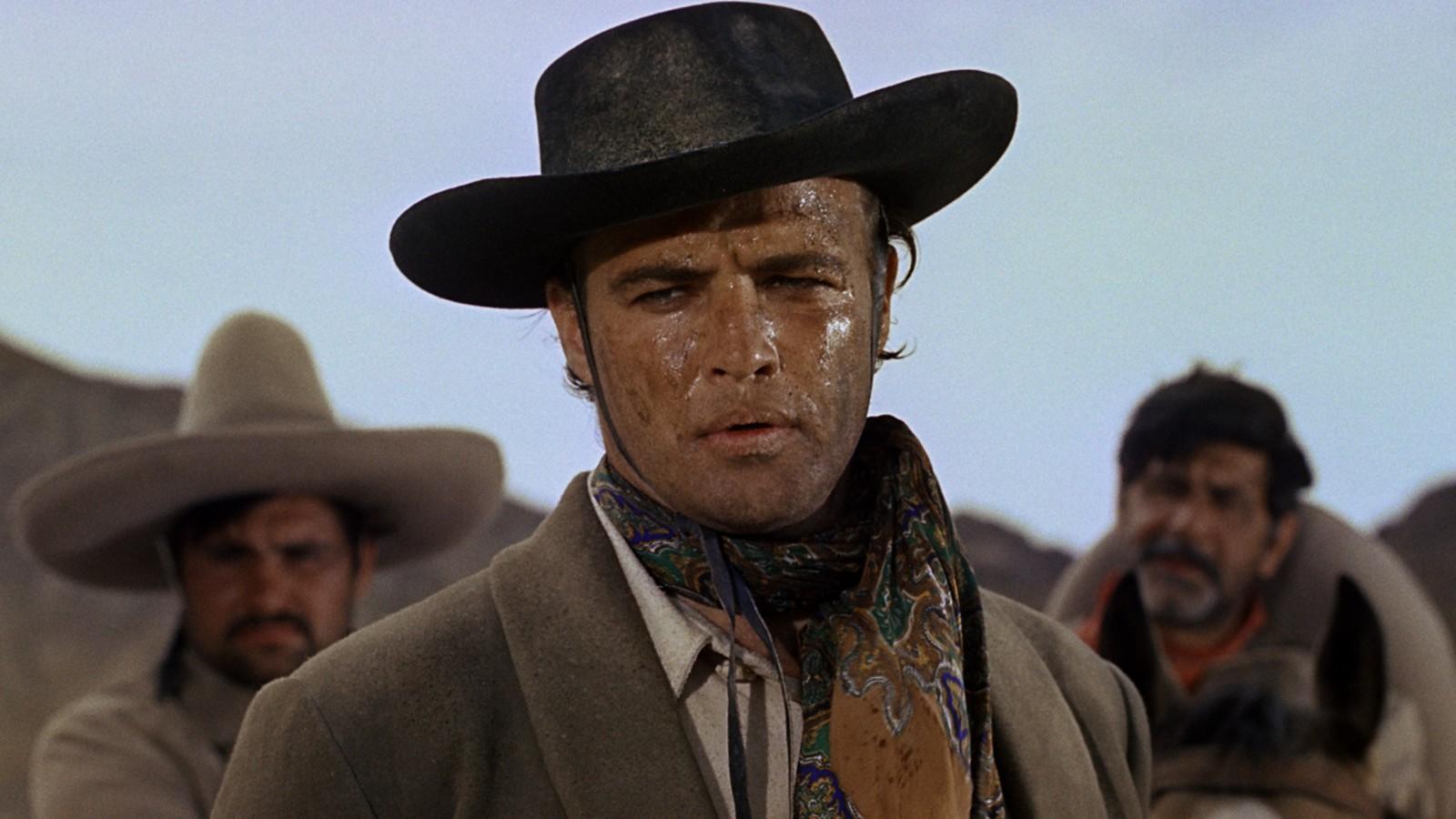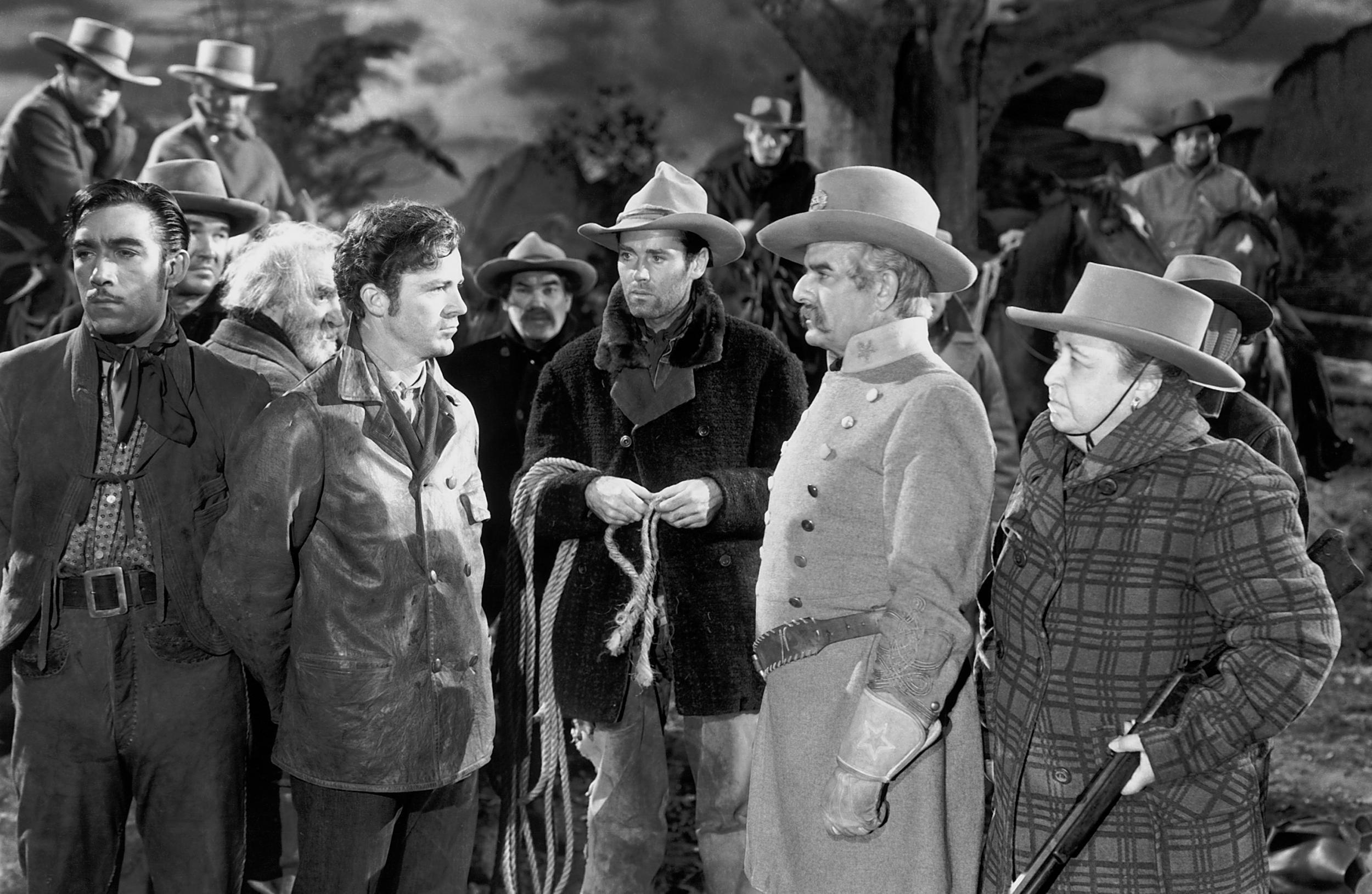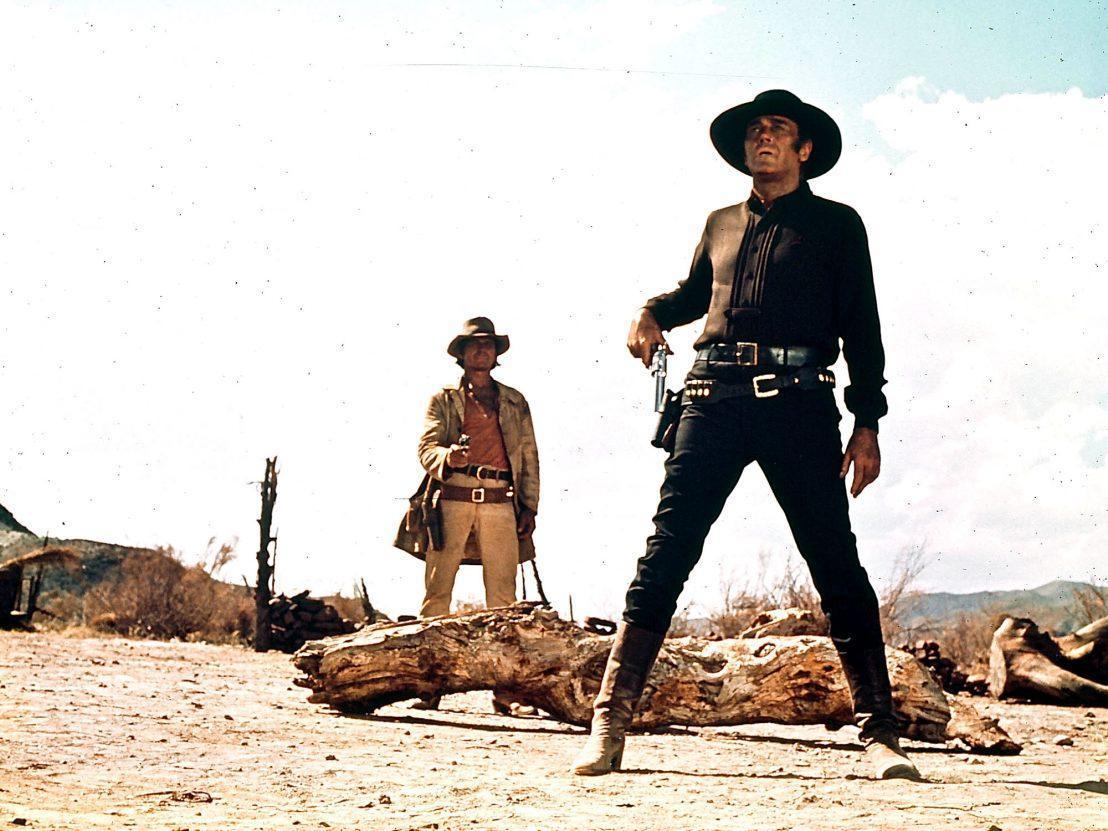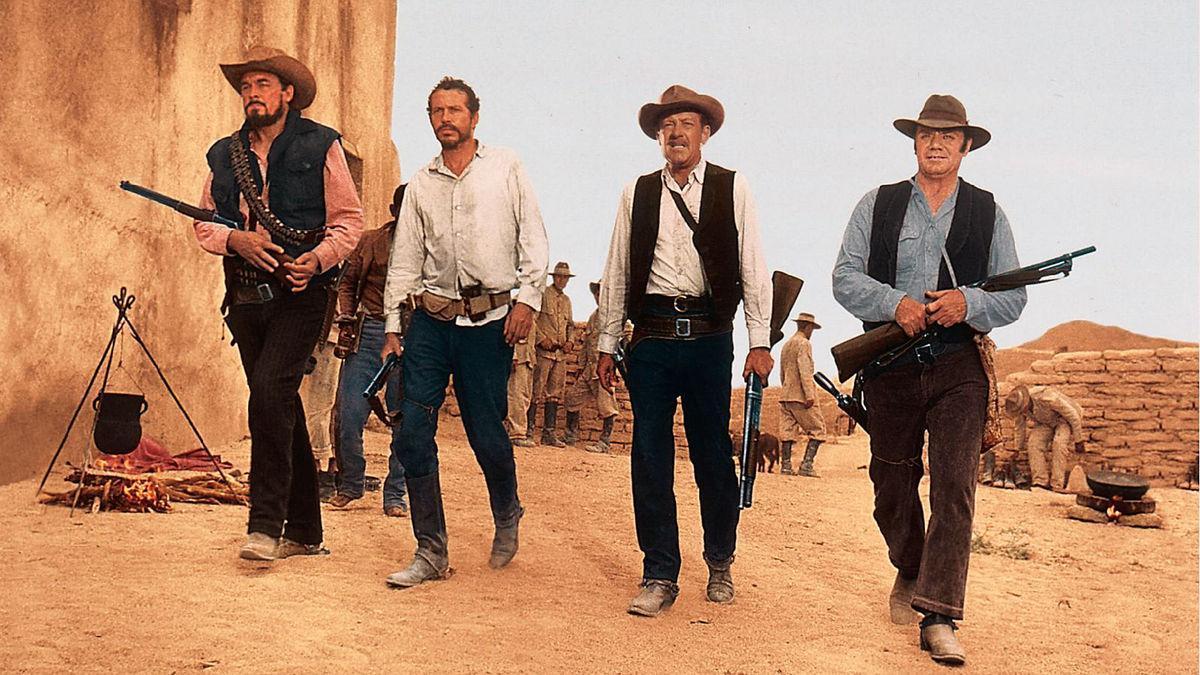The Magnificent 20: The greatest Westerns of all time
From John Ford classics to Sergio Leone gems, these are the best films the genre has to offer, says Graeme Ross
Your support helps us to tell the story
From reproductive rights to climate change to Big Tech, The Independent is on the ground when the story is developing. Whether it's investigating the financials of Elon Musk's pro-Trump PAC or producing our latest documentary, 'The A Word', which shines a light on the American women fighting for reproductive rights, we know how important it is to parse out the facts from the messaging.
At such a critical moment in US history, we need reporters on the ground. Your donation allows us to keep sending journalists to speak to both sides of the story.
The Independent is trusted by Americans across the entire political spectrum. And unlike many other quality news outlets, we choose not to lock Americans out of our reporting and analysis with paywalls. We believe quality journalism should be available to everyone, paid for by those who can afford it.
Your support makes all the difference.The western is one of the most beloved genres of all.
In recent years, it seems to have been making a comeback of sorts. Just a few years back, Chloé Zhao released her standout rodeo film The Rider, while in 2016, western heads had to contend with Antoine Fuqua's remake of The Magnificent Seven. John Sturges’ ever-popular original was itself a remake of Akira Kurosawa’s 1954 classic, Seven Samurai.
Below is a reminder of some of the greatest entries in the western canon.
20. Ride Lonesome (Budd Boetticher, 1959)
The pick of Boetticher and Randolph Scott’s superb seven-film collaboration follows stone-faced loner Scott’s obsessive quest to avenge his wife’s murder. Filmed entirely in breathtaking Sierra Nevada locations and also memorable for the classic Western line: “There are some things a man just can’t ride around.”
19. Vera Cruz (Robert Aldrich, 1954)
Double and triple crosses aplenty as mercenaries Burt Lancaster and Gary Cooper team up in revolutionary Mexico to steal a cache of gold. Pretty much dismissed on its release, Vera Cruz can now be viewed as an exhilarating precursor to the spaghetti Westerns of the sixties.
18. Winchester ’73 (Anthony Mann, 1950)
James Stewart showed that he could ride, shoot ‘em up and trade blows with the best of the Western icons in his episodic quest to retrieve his stolen fabled rifle. The great screen villain Dan Duryea almost steals the film as the sneering, sadistic Waco Johnnie Dean.
17. One-Eyed Jacks (Marlon Brando, 1961)

Brando fell out with original director Stanley Kubrick, leaving the star to helm the only film he directed, a take on the Billy the Kid legend. One-Eyed Jacks became famous for Brando’s excesses with an original running time of over four hours, but is now viewed as a fascinating, brooding masterpiece, and thanks to its stunning Monterey and Big Sur locations, one of the most aesthetically beautiful Westerns ever made. A restored version was shown at this year’s Cannes Film Festival.
16. Rio Bravo (Howard Hawks, 1959)
John Wayne’s sheriff faces an army of bad guys with only a drunk, a young gunfighter and a crippled old man on his side. The interplay between Wayne, Dean Martin and Walter Brennan is a delight and Dino even gets to sing. Great fun all round.
15. My Darling Clementine (John Ford, 1946)
A highly romanticised take on Wyatt Earp and the events at the OK Corral with Henry Fonda as Earp. Lyrical, poetic and with many iconic scenes that linger long in the memory such as Fonda lounging on a porch surveying the town, and his stiff legged dance with his “lady fair” at Tombstone’s new church’s dedication.
14. The Ox-Bow Incident (William A Wellman, 1943)

Henry Fonda’s hero is powerless to intervene as three innocent men are lynched by a mob for a crime that never happened. Social commentary in a Western setting, given added poignancy and resonance by the knowledge that Fonda had witnessed a lynching as a youth.
13. Butch Cassidy and the Sundance Kid (George Roy Hill, 1969)
An Oscar-laden buddy movie trading on the wonderful chemistry between Paul Newman and Robert Redford. Throw in William Goldman’s sparkling dialogue and Burt Bacharach’s famous soundtrack and we have an irresistible slice of late sixties cool, tempered with newfound revisionism.
12. The Gunfighter (Henry King, 1950)
With a theme resembling a Greek tragedy that evolved into one of the great Western clichés, ageing gunslinger Gregory Peck tries to put his bloody past behind him only to find that there’s always one more little squirt kid to outdraw.
11. Ride the High Country (Sam Peckinpah, 1962)
An elegiac lament for the death of the old West and a perfect valedictory present for two genre stalwarts, Joel McCrea and Randolph Scott, as a pair of veteran lawmen who have outlived their usefulness.
10. The Magnificent Seven (John Sturges, 1960)
A great storyline, terrific cast, unforgettable music and a series of memorable vignettes including Yul Brynner and Steve McQueen’s opening hearse scene and James Coburn’s knife/gun duel. What more can you ask from a Western?
9. Red River (Howard Hawks, 1948)
Epic Western from a master filmmaker that gave John Wayne the type of part in which he excelled, as the stubborn, driven rancher determined to see a cattle drive to the bitter end even if it means killing the foster son (Montgomery Clift) who takes his herd away from him.
8. High Noon (Fred Zinnemann,1952)
Famously regarded as an allegory of the McCarthy witch hunts in Hollywood, High Noon should first and foremost be enjoyed as a cracking Western set more or less in real time, with anguished lawman Gary Cooper deserted by his town as he faces the bad guys alone.
7. Stagecoach (John Ford, 1939)
Landmark Western that came to define the genre and made John Wayne a star. Part character study mixed with stirring action sequences courtesy of famed stuntman Yakima Canutt, with stunning use of Monument Valley on the Arizona-Utah border, the most single recognisable location in western movies.
6. Once Upon a Time in the West (Sergio Leone, 1968)

Once audiences got over the shock of Henry Fonda as a cold-hearted killer, they witnessed a western full of astonishing imagery, and one that has never been matched in scale, scope and ambition. Leone referenced virtually the entire history of Westerns in this stunning epic about the coming of the railroad and the modernisation of the West. Ennio Morricone’s wonderfully evocative score has rarely been bettered.
5. Shane (George Stevens, 1953)
Beloved adaptation of Jack Schaefer’s wonderful novel, with Alan Ladd perfect as the buckskinned gunfighter trying to hang up his six shooter but finding that “There’s no living with a killing”. Memorable for so many reasons, from the Oscar-winning cinematography and Jack Palance’s gleeful bad guy to the lump in the throat ending which still resonates as little Joey implores “Come back, Shane!”
4. Unforgiven (Clint Eastwood, 1992)
A ruthless killer turned pig farmer reluctantly takes one last job, and carnage ensues. Eastwood deconstructs the myths and legends of the Western and the result is a revisionist masterpiece that deservedly won Oscars for best picture and best director
3. The Good, the Bad and the Ugly (Sergio Leone, 1966)
The most famous spaghetti Western is a stylish, flamboyant, visual treat, with Ennio Morricone’s famous soundtrack at its core. Innovative and hugely influential, boasting several memorable set-pieces, including the authentic and moving civil war sequence.
2. The Wild Bunch (Sam Peckinpah, 1969)

On its release, Peckinpah’s visceral masterpiece provoked infamy for its level of violence, and even now the amount of blood and gore on show still shocks. But look beyond the balletic beauty of the slow motion carnage and it’s clear that Peckinpah holds true to his recurring themes of the death of the old West, and men out of step with the times facing their own imminent demise.
1. The Searchers (John Ford, 1956)
The saga of a racist outsider’s search for his kidnapped niece still astounds in its dark power, beauty and all round magnificence. Complex, multi-layered and troubling, with a monumental performance from Wayne as the bigoted anti-hero, the film repays repeated viewing.




Join our commenting forum
Join thought-provoking conversations, follow other Independent readers and see their replies
Comments